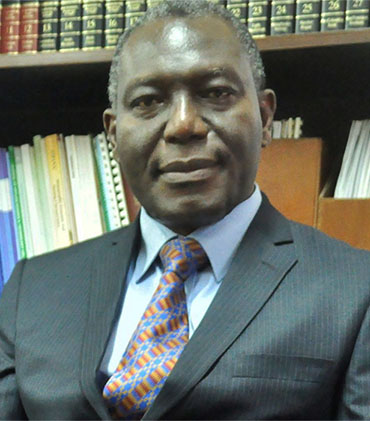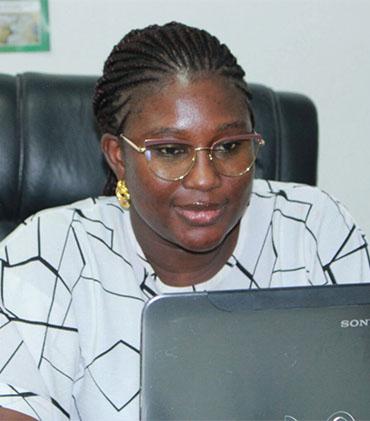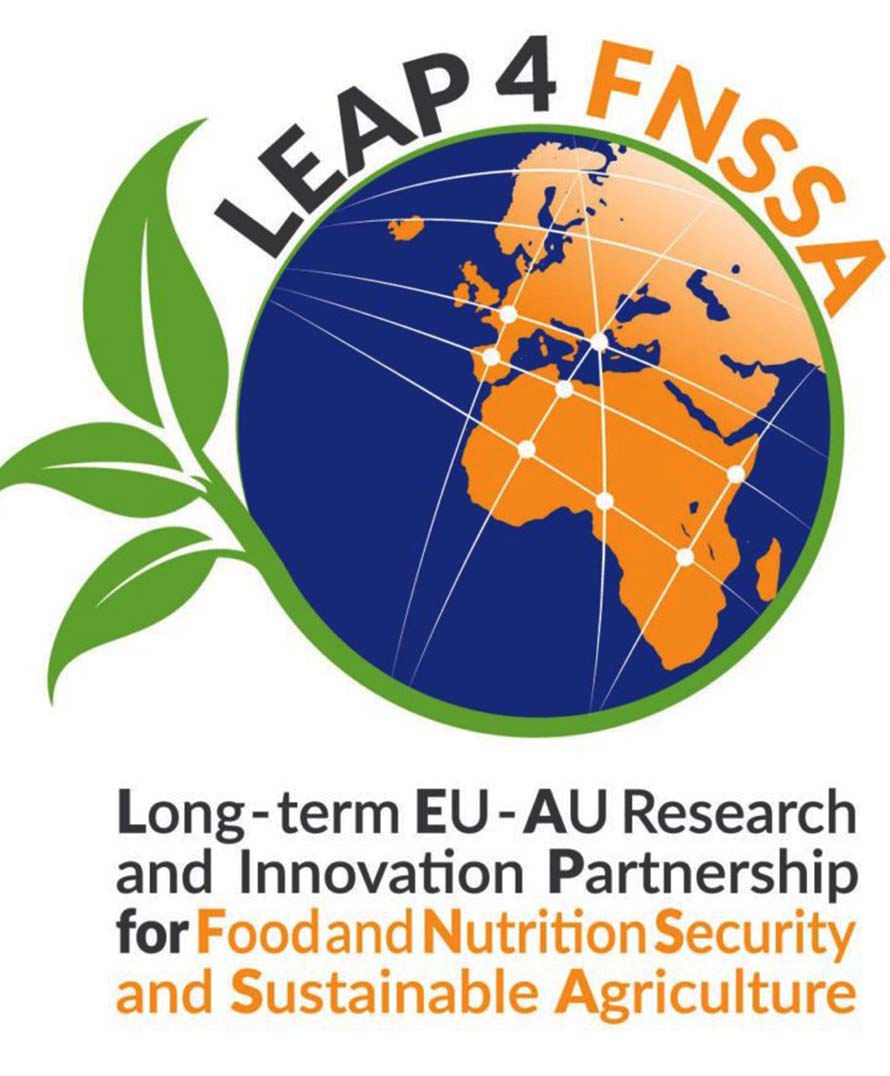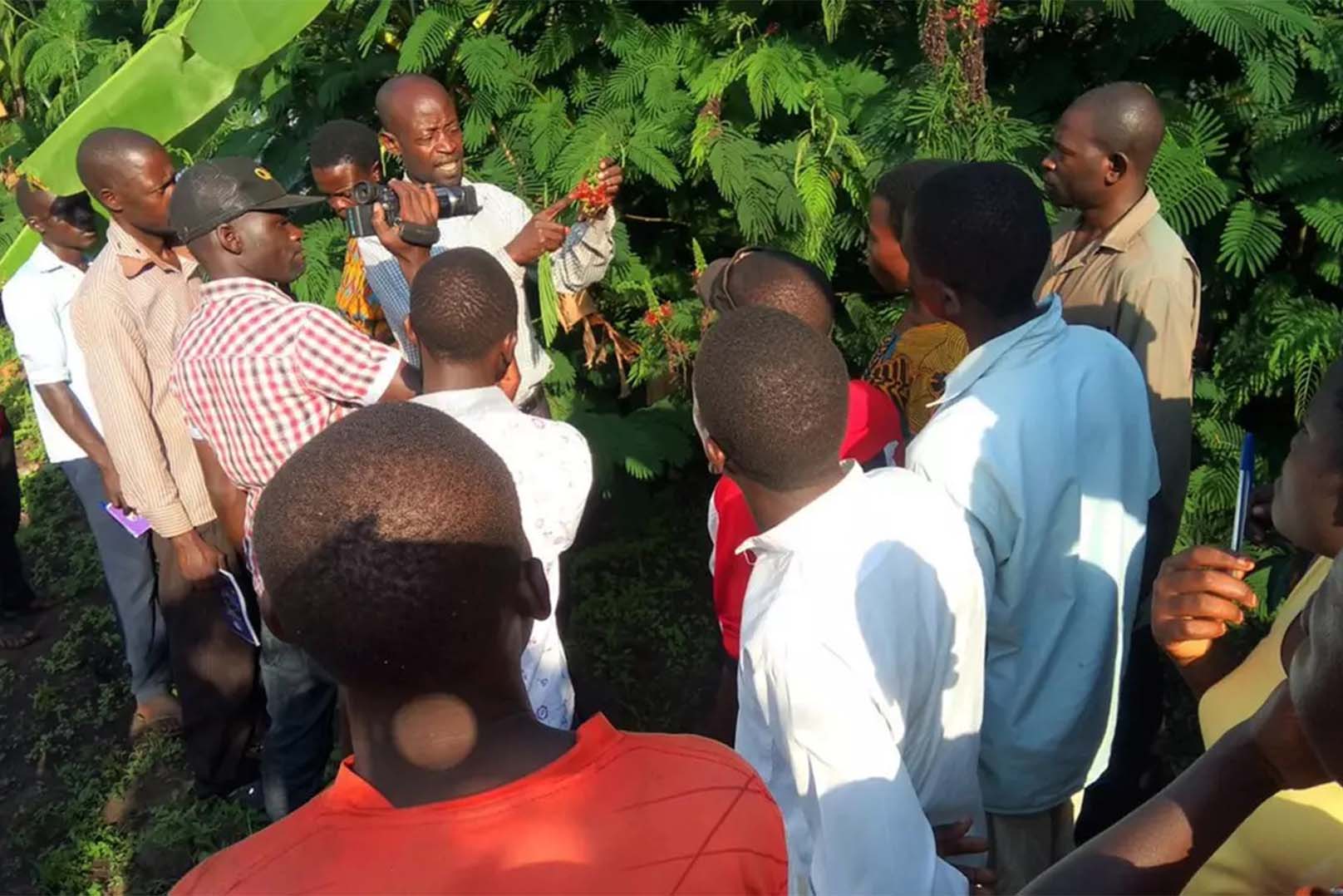LEAP4FNSSA
Project Detail
- Collaborating institutions/partnership: 20 European Partners (From 14 Countries); 15 African Partners (From 8 Countries)
- Duration:4 years from 1st Nov 2018
- Funding source (donor):European Commission
- Location:Africa and Europe
Participating scientists (with PI)





Specific Objective
To establish a sustainable structure, or ‘Platform’, for the efficient and coherent implementation of the AU-EU Research and Innovation Partnership as described in the FNSSA Roadmap.
LEAP4FNSSA is being implemented through 5 work packages. STEPRI is co-leading the WP2 with the German Aerospace Center (DLR). WP2 will improve the effectiveness of the AU-EU FNSSA Partnership by contributing to the creation of strategic FNSSA Alliances in R&I, as part of the envisaged multi-actor Platform based on the HLPD FNSSA Roadmap of 2016 to jointly plan and implement research. The aim of this strategy will be to improve coordination and launch collaborative actions, in particular, set up support mechanisms (including funding mechanism) for fostering the proposed FNSSA Platform to which the design and testing of an Africa-Europe Knowledge Management and Communication Framework (KMCF) is key. CSIR-STEPRI is also a member of the project steering committee and thus participates in the monthly meetings as well as supporting other work packages.
Results Achieved in 2022
Initiating the West Africa-Europe Alliance
Due to the COVID-19 restrictions, the consortium partners have slightly modified the original work plan. They have introduced ‘hybrid workshops’ where all the Tasks are contributing in various ways. As part of the process for establishing the West Africa-EU Alliances, WP2 has constituted 3 working groups (WGs): (i)WG 1 – Theory of Change and Impact Pathways; (ii) WG 2 – Communication concept; and (iii) WG 3 – Data & Knowledge Management. The initial membership of the WGs comprises sub regional organisations (i.e., CORAF, ECOWAS, WASCAL, and CILSS). A series of virtual workshops have been held on (1) Theory of Change and Impact Pathways, (2) Communication Concept for the Sorting House Mechanism (SHM) for the West Africa-EU Alliance (WAEA) and Data & Knowledge Management.
Initiating the North Africa-Europe Alliance
Mirroring the process being used for the WAEA, the North Africa-EU Alliance (NAEA) has been initiated and eight workshops organised with stakeholders from research, funding, academic and private sector to identify major issues in the subregions, identify stakeholders to join the working groups, identify working group leaders, and jointly work on documents on the AFRIS platform.
Complementary strategy
Due to the slow pace at which working group members are working to jointly develop the relevant documents, a survey has been developed to gather information from a wider segment of stakeholders to feed into the documents. A survey was launched, data collected and analysed. The survey results were fed into the theory of change and impact pathway of the International Research Consortium.
Workshop on Upscaling private sector participation and science-based outreach in West Africa
This hybrid workshop was held on 22 and 23 June 2022 and was jointly organised by GO AFRICA (Germany), KEF (Egypt), and CSIR-STEPRI (Ghana). The workshops attracted more than 200 stakeholders, with 231 registered participants from the following 27 African countries: Benin, Burkina Faso, Cameroon, Congo, Côte d’Ivoire, Egypt, Ethiopia, Gabon, Gambia, Ghana, Guinea-Bissau, Kenya, Lesotho, Liberia, Malawi, Mali, Mauretania, Mauritius, Morocco, Mozambique, Niger, Nigeria, Rwanda, Senegal, Somalia, South Africa, Tanzania, Uganda, Zambia and Zimbabwe. Registered European participants were from the following countries: Denmark, Finland, France, Germany, Italy, Portugal Spain as well as United Kingdom and Kosovo. Over two days the participants discussed how to increase private sector participation in research and innovation and mechanisms and impact of science-based outreach. The outcomes of the workshop were presented by CSIR-STEPRI the LEAP4FNSSA IRC Stakeholder Engagement Workshop held in Brussels, Belgium on 13 July 2022.
Based on the contributions by farmers, entrepreneurs, researchers, funders and policy actors, the following conclusions were drawn from the workshop:
- It is important to establish and strengthen farmer groups or clusters at the continental, multi-country, national, and local levels to help optimize value chains, increase access to finance and reduce the costs and risks of service delivery.
- Alternative & long-term sustainable co-funding arrangements for innovative, demand-driven & development-oriented research is needed. Industrial topics such as packaging should be addressed to allow for upscaling.
- Need for a platform that brings together all actors for the identification of new opportunities and challenges and jointly finding solutions & best practices.
- Research institutions should make themselves approachable and not be private-sector competitors e.g. by including some industry players in their committees.
- Private sector is looking for institutionalized partnerships and will co-fund but have also access to the project’s funds and participate in project implementation.
- Multidisciplinary approaches must be coordinated to result in evidence-based policy analysis supporting food and nutrition security and sustainable agriculture.
Strategies and mechanisms for successful science-based outreach on FNSSA
- Reinforcing capacity building on communication, policy advice and impact analysis. Scientists must be engaged to go into communication, to formulate articles, radio broadcasts and to engage with media and policy makers.
- Intra-Africa partnerships as well as African and European capacity building programmes and partnerships between universities, including exchange opportunities to be enhanced. Strategic partnerships needed with research institutions, private sector, NGOs, professional bodies etc. to facilitate communication.
- New technologies and information systems to be used to accelerate science-based outreach for the translation of research results into practice and to enhance policies. Multiple communication approaches required e.g. D-groups.
- There is a need to address the poor communication skills of researchers and challenges of translation into various languages.
- Continuous interactions with farmers and end-users is necessary to ensure they are part of their research right from the beginning to the end.
- Need for a communication audit where feedback is obtained from end-users of research output to measure the rate of response & impact.
- Researchers must communicate the returns on investment in RI to inform policymakers and other stakeholders about the benefits of investing in research.
Establishment and launch the International Research Consortium (IRC) on FNSSA
The overall objective of the LEAP4FNSSA project is to establish a sustainable structure, or ‘Platform’ for the efficient and coherent implementation of the AU-EU Research and Innovation Partnership as described in the FNSSA Roadmap. Thus, the platform dubbed International Research Consortium (IRC) for research and innovation on FNSSA was established and launched in Accra on 16th September 2022 with 50 founding members including CSIR-STEPRI. Before the launch there was a write-shop on 14th -15th September to finalise a guidance document for the IRC. More information can be found about the IRC here: https://leap4fnssa.eu/wp-content/uploads/2021/07/Updated-2-pager-4-information.pdf
Way Forward


